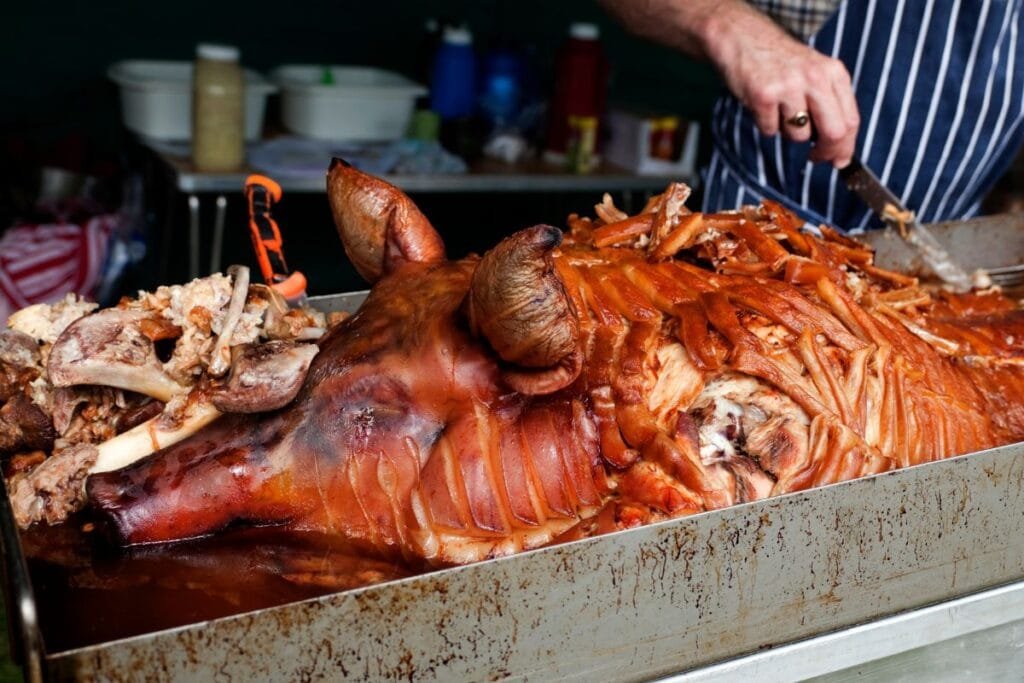Valladolid, Yucatán — The city of Valladolid has claimed the title of Mexico’s premier culinary destination, earning top honors in the food category of the 2025 Tianguis Turístico de México. The recognition, presented by José Carlos de Santiago, president of Grupo Excelencias, places Valladolid at the forefront of Mexican gastronomy and highlights the enduring legacy of Yucatecan cuisine.
The award was granted as part of the Pueblos Mágicos competition, which evaluated 78 towns across Mexico. Valladolid’s victory was determined by a weighted scoring system: 40% public voting, 50% evaluation by a judging panel, and 10% input from Grupo Excelencias.
A Triumph of Collaboration and Culinary Tradition
Local leaders credited the win to the collective efforts of residents and officials who have worked tirelessly to preserve and promote the city’s rich culinary heritage. Among them were Noé Israel Rivero Sánchez, director of Economic Development, and Argelina Ontiveros Sánchez, director of Tourism, who both emphasized the importance of maintaining traditional foodways while welcoming culinary innovation.
This prestigious designation affirms what many locals and visitors already know: Valladolid is a must-visit destination for anyone seeking a taste of authentic, deeply rooted Mexican cuisine.

The Essence of Yucatán Cuisine
Valladolid’s rise as a gastronomic capital is inseparable from the larger culinary landscape of the Yucatán Peninsula. The region’s cuisine reflects a fusion of Maya, Spanish, Caribbean, Middle Eastern, and Dutch influences, shaped over centuries and defined by both indigenous ingredients and distinct cooking techniques.
Key ingredients include:
- Achiote (annatto seed): Ground into a paste and used to marinate meats, giving dishes a deep red hue and earthy flavor.
- Sour orange (naranja agria): A tangy citrus fruit essential to many marinades and salsas.
- Habanero chiles: Native to the region and known for their intense heat and floral aroma.
- Corn, black beans, and pumpkin seeds: Staples in traditional Maya cooking.
- Recado spice blends: Custom seasoning pastes (recado rojo, recado negro, etc.) used to build complex flavor profiles.
Cooking methods are just as distinctive. One of the most iconic is pib, a traditional underground pit oven used to slow-roast marinated meats wrapped in banana leaves. This technique dates back to the pre-Hispanic era and is still used today, especially for celebratory dishes like cochinita pibil.

Signature Dishes That Define a Region
Among Valladolid’s culinary hallmarks, several dishes stand out:
- Cochinita Pibil: Arguably the region’s most famous export, this slow-roasted pork dish is marinated in achiote and sour orange, wrapped in banana leaves, and traditionally cooked in a pib. It is typically served with pickled red onions and habanero salsa.
- Lechón al Horno: Oven-roasted suckling pig with crispy skin and rich flavor.
- Relleno Negro: A complex turkey stew made with recado negro (a dark, smoky spice blend) and hard-boiled eggs.
- Lomitos de Valladolid: Tender pork loin cubes simmered in tomato sauce and served with boiled eggs—a signature local dish.
- Panuchos and Salbutes: Fried corn tortillas stuffed (panuchos) or topped (salbutes) with black beans, meat, lettuce, and avocado.
- Sopa de Lima: A fragrant soup made with lime, shredded turkey or chicken, and crispy tortilla strips.
A Boost to Tourism and Cultural Identity
The award recognizes not just individual dishes, but a deeply rooted culinary culture that continues to shape Yucatán’s identity and drive tourism growth. During the Tianguis Turístico—held this year in Baja California—Yucatán’s presence was highlighted with the distribution of more than 5,000 cochinita pibil tacos, showcasing the region’s bold flavors and welcoming spirit.
Officials say the award will help strengthen Valladolid’s visibility among both national and international travelers. The city’s commitment to high-quality hospitality and cultural authenticity makes it an ideal gateway for exploring the broader flavors of the peninsula.
The city’s historic Zací district—named after the original Maya city—continues to serve as the heart of its gastronomic scene, where family-run eateries and market stalls stand alongside fine dining establishments. The recognition also comes at a time when Yucatecan cuisine is gaining international traction, with chefs from the region expanding into global markets in places like Greece and Italy.
A Legacy Worth Protecting
The ceremony concluded with a strong commitment from Valladolid’s representatives to maintain and elevate culinary standards while preserving time-honored techniques and community traditions. As new generations of chefs and food lovers embrace the region’s unique ingredients and methods, Valladolid is poised to remain a cornerstone of Mexico’s culinary map.
Discover more from Riviera Maya News & Events
Subscribe to get the latest posts sent to your email.
